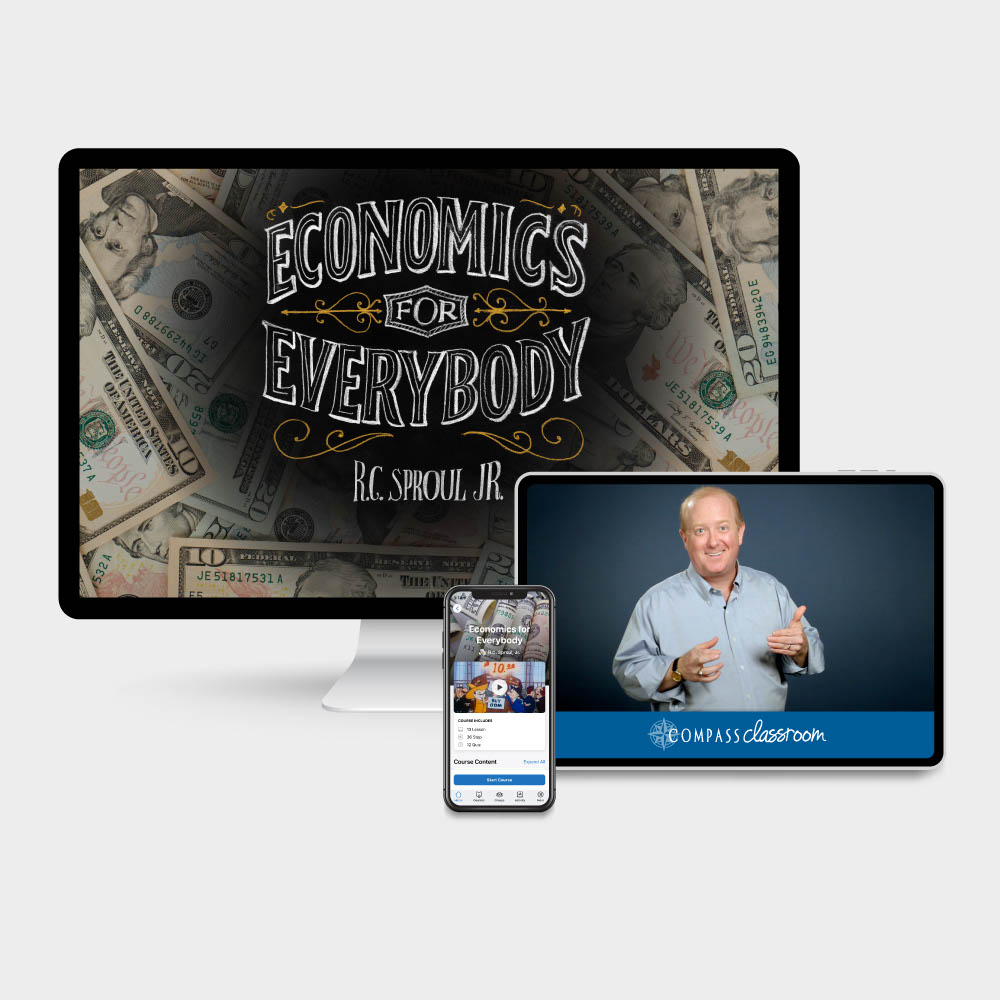
Share this post with another homeschool mom!

Ask someone what the Economics of John Calvin has to do with free markets, and you’ll probably get a blank stare.
Some might remember the phrase “Protestant work ethic” that is vaguely associated with an image of a plainly dressed, dour-faced Puritan. Or a few might think of Calvinists as being generally business-minded, perhaps because of a book by Max Weber entitled The Protestant Ethic and the Spirit of Capitalism.
But Calvin’s work has had such a powerful impact on the way we live in the freer countries of the world that we should become a little more familiar with what he said about business, economics, and politics.
Calvin’s theology was a practical theology.
He not only encouraged people to live with personal piety, but also thought about how people should conduct themselves politically.
As Alister McGrath pointed out, Calvin’s “vision of the Christian faith extended far beyond the piety of a privatized faith or the cerebral conundrums of an intellectualized theology. Theology for Calvin offered a framework for engaging with public life.”
Though many people think of Calvinists as severe, oppressive, and restrictive in social matters, Calvinism actually gave us some of the most important moral defenses of liberty. Calvin’s ideas supported limitations on the authority of the civil magistrate, and Calvinists such as the French Huguenot Philippe du Plessis Mornay (1549-1623) argued against the absolute right of a king to rule.
R.J. Rushdoony wrote in his book This Independent Republic that Mornay’s book Vindiciae Contra Tyrannos (A Defense of Liberty Against Tyrants) was “held by John Adams as one of the most influential books in America on the eve of the Revolution.” Other Calvinistic works on limited government, such as Samuel Rutherford’s Lex, Rex (1644), have also argued forcefully against unrestrained civil authority. Calvin himself preached in 1562 that “Pride blinds [princes] so totally that they think they ought to be put in the rank of God.”
Calvin’s work argued that Christians were perfectly free to engage in “secular” occupations, so that Christian merchants and industrialists need not be regarded as second-class citizens. This was a break from the generally-held medieval perception that commercial activity – particularly moneylending – was suspicious and even immoral.
It is true, of course, that Calvin recognized the tendency toward graft in the businessmen of his day (at one point he referred to them as “robbers”). Nevertheless, he accepted commerce as a beneficial human activity. In 16th-century Geneva, merchants clearly prospered, with the number rising from 50 in 1536 to 180 a quarter-century later.
Though Calvin was not an economist, McGrath says that “he appears to have been fully cognizant of basic economic principles…. He praised the division of labor for its economic benefits and the way it emphasizes human interdependence and social existence. The right of individuals to possess property, denied by the radical wing of the Reformation [such as the Anabaptists], Calvin upheld.” In an exposition on Exodus 16:17, Calvin wrote,
For it is necessary for the preservation of human society that each should possess what is his own; that some should acquire property by purchase, that to others it should come by hereditary right, to others by the title of presentation, that each should increase his portion in proportion to his diligence, or bodily strength, or other qualifications. In fine, political government requires, that each should enjoy what belongs to him….
John Calvin
Not a devotee of free markets
Calvin granted a substantial role for government-supported social services and economic regulation.
The economics of John Calvin moved Christian thinking about markets in the right direction. He attacked the medieval usury doctrine, which contained broad (though inconsistently enforced) prohibitions against interest. Calvin argued that interest was legitimate except in the case of lending to the poor, but (inconsistently) also said that a person should not be a professional moneylender.
Fortunately, the Dutch Calvinist Claude Saumaise (1588-1653) rectified this inconsistency. He quite logically reasoned that since more moneylenders meant more competition and lower interest rates, it would help the poor for there to be more professional moneylenders. Overall, Calvin’s thinking on usury and interest helped the medieval world escape another unbiblical restriction. As Murray Rothbard wrote, “Calvin’s bold break with the formal ban was a liberating breakthrough in Western thought and practice.”

Economics for Everybody
An insightful study of economic principles that links entrepreneurship with lemonade and Charlie Chaplin with supply and demand. Your homeschool student will develop an understanding of economic freedom, inflation, stewardship, and the roles of trade and markets.
Economics of John Calvin
Even those who do not consider themselves Calvinists – or even Christian – owe a debt to Calvin if they live in an environment of prosperity and relative freedom today. Calvinism’s doctrine of total depravity applied to kings as well as common folk, and led to important restrictions on civil government. (On this point, see Douglas Kelly’s excellent book The Emergence of Liberty in the Modern World: The Influence of Calvin on Five Governments from the 16th Through 18th Centuries.)
Calvin’s theology of work gave support to those who believed that they could serve God as merchants, manufacturers, or farmers – and not just as clergy. His ideas about Christian liberty and the freedom of conscience, along with his justification of property rights, encouraged economic success. Overall, the economic policies we regard today as supportive of “free markets” or “classical liberalism” have some of their ancestry in Calvin and his followers.
For more on this, I recommend Calvin and Culture: Exploring a Worldview, edited by David Hall and Marvin Padgett.
Want to teach your students Economics?
RC Sproul, Jr.’s consummate teaching is illustrated with hundreds of fun and interesting clips from old movies and cartoons. Learning economics is interesting and enjoyable with Economics for Everybody.
Share this post with another homeschool mom!








